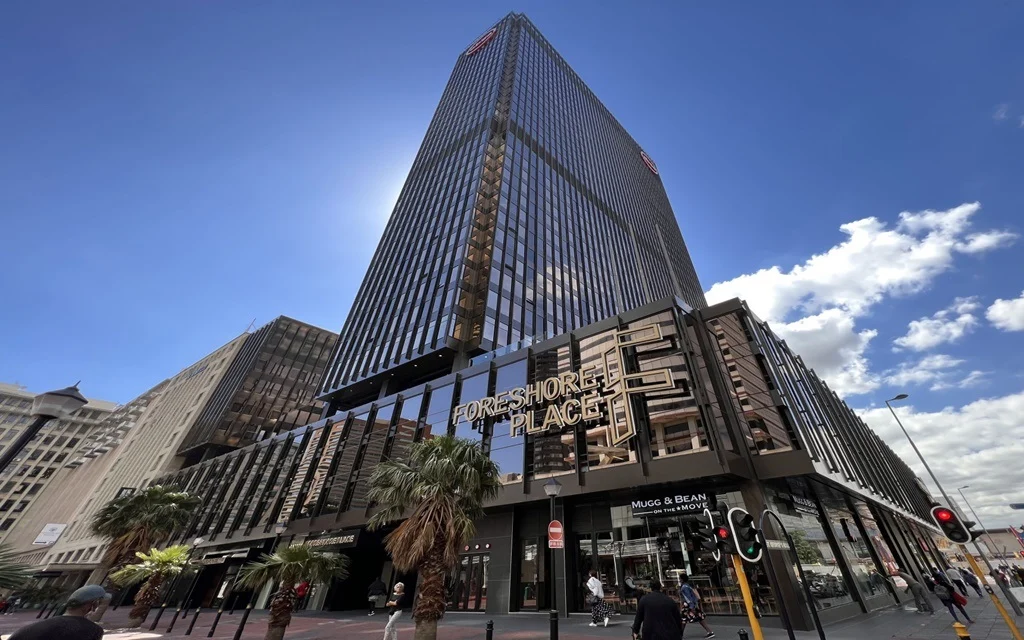The iconic 34-storey “Absa Building” in Cape Town’s central business district is coming to market as a mixed-use development known as Foreshore Place.
It is the second-tallest building in the Mother City, nicknamed for the large Absa logo on its side. Absa leases the signage rights on the building as well as the retail space on the ground floor, but the building is owned by a private developer.
The development offers 13 floors of dedicated office space, 11 floors of residential apartments, a retail floor, five floors of parking and a hotel that will be operated by an international hospitality brand.
The residential floors comprise studio, one- and two-bedroom apartments, ranging in price from R1.1 million to R4.2 million.
“People are placing increased value on lifestyle and convenience by opting for mixed-use developments that combine retail, residential and commercial all under one roof,” says Justine Adriaanzen, commercial real estate broker at Galetti Corporate Real Estate.
She believes the building is well located in the CBD and should be attractive to those not wanting long commutes to work.
Furthermore, Foreshore Place will be situated opposite the new Cape Station Project – a 3 085-bed student accommodation development.
ALSO READ: South Africa faces risk of unprecedented level of power outages
According to the latest report by the Cape Town Central City Improvement District (CCID), last year, R5.7 billion worth of new property investment was recorded in the centre city, and 28 new property developments were completed despite tight economy conditions and pandemic-related pressures.
Five of the 13 completed property investments are either hotels or “aparthotels” (a set of apartments that offer services like a hotel). These include the aparthotel The Rockefeller (R500 million), Hotel Sky (R400 million), aparthotel BlackBrick Cape Town (R107 million), and The Capital 15 on Orange (R20 million).
“Cape Town’s inner city economy has continued to hold its own. This has not been an accident. Rather, it is the result of years’ worth of investment in cleansing, law enforcement, public safety and the other things that inner city businesses and homes need to thrive,” comments CCID CEO Tasso Evangelinos.
Source: News 24

